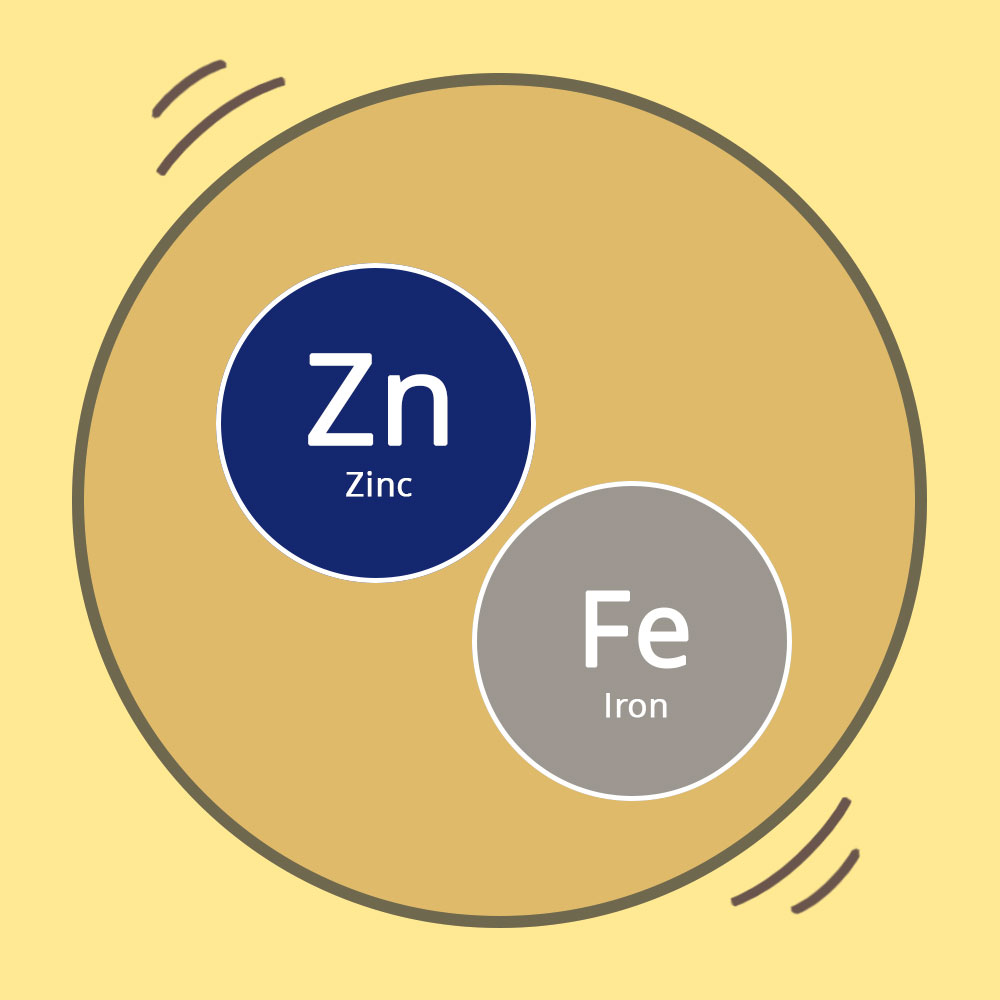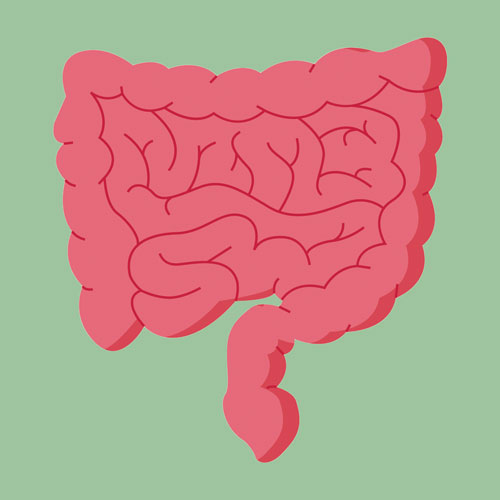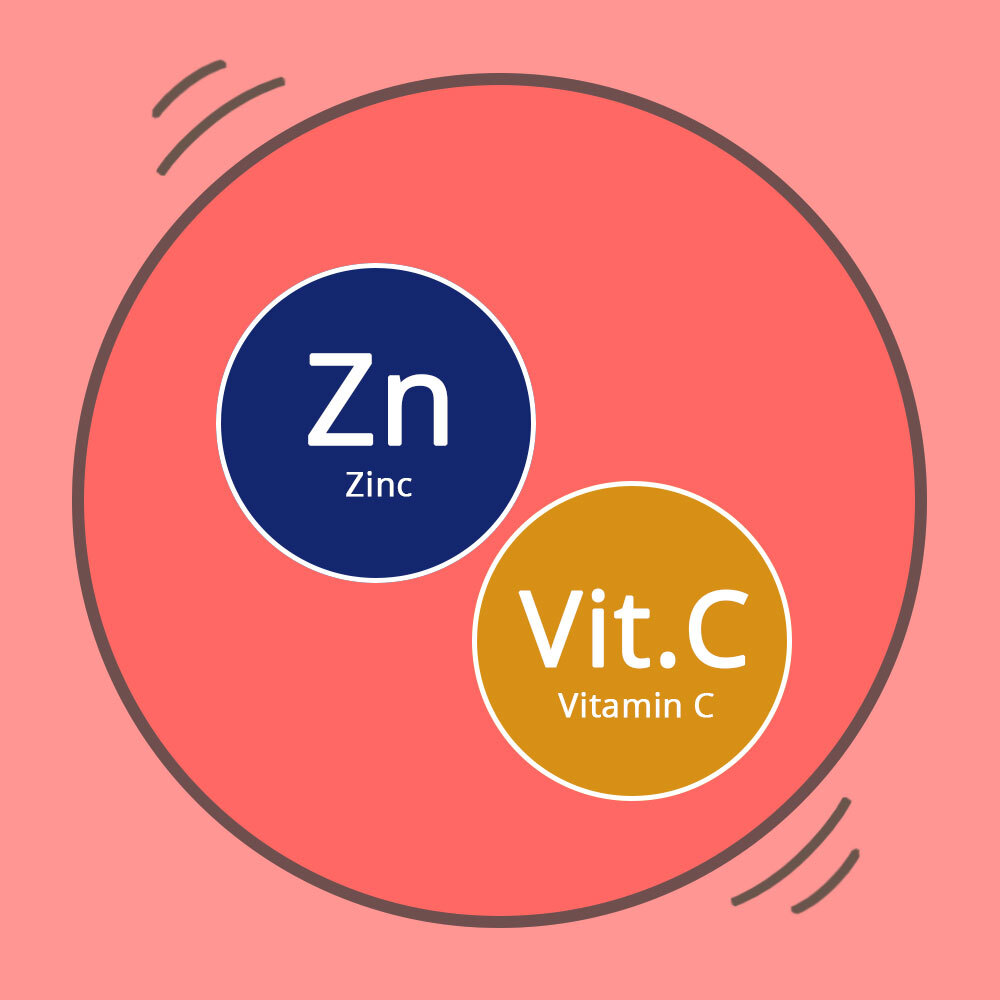Fighting diabetes with the power of zinc

Questions answered in this article:
We have all experienced annoying sugar crashes – you have a short burst of energy, but in the end, you are left feeling drained and weak. Now imagine having these sugar crashes over and over again. That's exactly what having diabetes feels like! Diabetes is one of the most prevalent chronic diseases in developed countries and can wreak havoc on long-term health when left untreated. This metabolic syndrome is more common than you think.
The importance of balanced blood sugar
Diabetes is characterized by high blood sugar, as well as a dysfunction or lack of the sugar-regulating hormone known as insulin.
When you eat foods rich in carbohydrates, the digestive system breaks down the sugars to be absorbed into the bloodstream. Then, insulin levels increase to help move the sugars into your blood cells to be used as energy. After 1-2 hours, insulin levels will decrease as its job is finished. This process may seem simple, but if insulin does not rise and fall as it should, things can go awry.
What is diabetes?
Diabetes can be separated into 2 types based on their causes. Type 1 diabetes is an autoimmune disease where the body destroys its own insulin and is unable to bring the sugars into the cell as a result. Type 2 diabetes occurs when the body does not respond well to insulin and cannot easily bring sugars into the cells.
In both cases, blood sugar levels remain high and can cause uncomfortable symptoms. The symptoms start off mild, but if left untreated, can damage the nerves, eyes, kidneys and other organs.
General symptoms of diabetes
- Increased thirst and hunger
- Frequent urination
- Extreme fatigue
- Blurry vision
- Weight loss (type 1) or gain (type 2)
Blood sugar ranges for diabetes
Diabetes is diagnosed by the presence of high blood sugar of A1c. According to Diabetes Canada, the lab diagnostics are as follows:
- A1c: 6.5% or less
- Fasting blood sugar: 5.3 mmol/L or less
- Non-fasting blood sugar:
- 1 hour after meals: 7. Is 8 mmol/L
- 2 hours after meals: 6.7 mmol/L
A1c percentage is like a report card showing your history of high blood sugar during the past 2-3 months. The higher the percentage, the higher the blood sugar. On the other hand, fasting and non-fasting numbers represent your blood sugar levels during the moment your blood was drawn. Both values are needed to paint a complete picture of your ability to balance blood sugars.
Zinc's impact on insulin function
Insulin is the star player when it comes to balancing blood sugar. When the body does not respond to insulin, or when insulin does not function properly, blood sugar struggles to stay balanced.
Blood sugar balance begins with the beta cells in the pancreas. Beta cells are responsible for creating and maturing insulin. In a healthy individual, beta cells have the highest concentration of zinc in the body. Changes in these zinc levels have been associated with diabetes.
Similar to the way insulin brings the sugar into the cells to be used, zinc binds with insulin to bring insulin out of the beta cells. Once the zinc-insulin complex is in the bloodstream, zinc will detach itself to activate the insulin. However, when zinc levels are low, the zinc-insulin complex pathway is impaired, which can lead to insulin resistance.
Zinc's ability to regulate fasting blood sugar
The goal for diabetic patients is to keep blood sugar levels stable by supplying or improving the function of insulin. Blood sugar levels increase post-meal, and lower again after insulin completes its job. To accomplish this, insulin has its own transporter protein called IGF-1 that removes sugar from the bloodstream and deposits it in the cell.
Many nutrients regulate the activation of IGF-1 to keep fasting blood sugar stable. Specifically, daily zinc consumption is an important factor for increasing IGF-1 levels. Whether you have been diagnosed with prediabetes or diabetes, zinc can benefit you.
Zinc deficiency and diabetes – Which came first?
It is difficult to answer this question, because there is evidence in favour of both. Zinc deficiency can be an indicator for diabetes, and those with diabetes tend to be zinc deficient. There are two main reasons for this:
- Those with diabetes often have decreased gastrointestinal absorption and zinc must be absorbed in the intestines.
- When blood sugar is consistently high, urinary zinc excretion increases.
A low absorption rate paired with a high excretion rate means it is more difficult to retain adequate zinc in the body. Thus, it is expected for diabetic patients to have significantly lower zinc levels. Diabetic patients aged 50 and older are particularly susceptible to zinc deficiency because they often avoid meats and other zinc-rich foods. In many cases, both intake and absorption of zinc are low.
Is it possible to prevent diabetes?
As opposed to Type 1, Type 2 diabetes develops slowly. If you have been instructed to monitor your blood sugar levels, it is likely you have been introduced to the term "prediabetes". Prediabetes refers to blood sugar levels that are higher than normal, but not high enough to be considered diabetes. If this sounds like you, think of this diagnosis as a crossroad. Diabetes develops from a combination of lifestyle and hereditary factors. You can wait until your blood sugar levels rise to the point of diabetes, or you can start managing your blood sugar to change your future. Prevention strategies are key!
Multiple studies have shown zinc supplements to be a supportive strategy in preventing diabetes. One study in particular showed that zinc supplementation among people with prediabetes reduced the progression to diabetes from 25% to 11%. Zinc intake should not be the only strategy used, but given its positive findings, it is a useful addition to complement dietary and lifestyle interventions.
Zinc supplementation in patients with Type 2 diabetes
When taking a proactive approach to diabetes, supporting blood sugar levels through diet, lifestyle and supplementation is key. Our gentle, yet absorbable Zinc Bis-Glycinate 25 can be taken every day to help lower fasting blood glucose and regulate insulin.
Although zinc plays a powerful role in blood sugar balance, be sure to speak with your healthcare practitioner if you would like to add zinc to your health regimen. If you are on any medications for diabetes, consult with your healthcare practitioners for how to best proceed.








